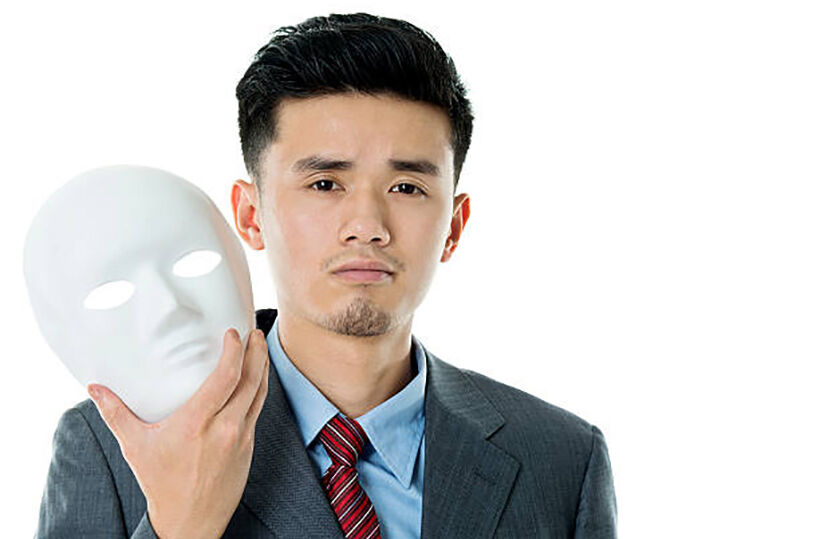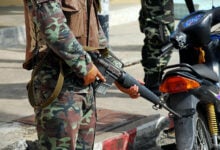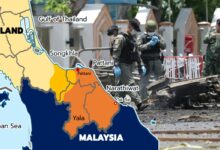To wear or not to wear a face mask (in Thailand) – that is the question – OPINION

The Thai PM, chairing today’s CCSA meeting, has asked people in Thailand to keep wearing their masks.
The words were carefully crafted.
“…although there are no legal obligations for people to wear face masks, people are still very strongly advised to do so, especially when it is deemed necessary.”
In other words, you don’t HAVE to. So nothing has changed in that regard as of today’s CCSA meeting.
“According to the Ministry of Public Health, the government still encourages people to wear masks, especially in poorly ventilated spaces.”
More details about today’s CCSA announcements HERE.
Since the last week of June, the previous requirement to wear a mask, as enacted by the CCSA back in 2020, under the auspices of the Emergency Decree, was dropped for “open spaces and public areas”. It became, politely, ‘voluntary’.
Since the announcement was made we waited to see how the public would react. Doubts were expressed that Thais would be getting rid of their face masks in a hurry. We were right. Certainly, around busier parts of Bangkok, face masks are still uniformly worn by almost all Thais. Certainly, on all public transport, it remains an enforceable requirement. Same with private shops that, still, require shoppers entering their premises, to wear a face mask.
The same policy remains on all Thai domestic flights and airports.
This week there was a lot of rolling back of the decision to allow face masks to be ‘voluntary’. The Public Health Minister even said his ministry “never supported” the removal of the mask requirement.
The background to all this wooly language and back-tracking follows dissension within the CCSA and Thai ministries. From the tourism point of view, there is an urgent need to get Thailand ‘back to normal’. Whilst the public health ministry remains extremely risk averse and is concerned by the rise in Omicron sub-variant cases, with more BA.4 and BA.5 infections begin reported over the past 2 weeks.
Today it was also announced by the CCSA that the emergency decree will continue for at least another 2 months, up to the end of September. The emergency decree provides the CCSA, the country’s Covid taskforce’ with the power to make ‘Covid’ related legislation on the run, without having to go through the usually parliamentary processes. On one hand, it allowed Thailand to quickly shift strategy as it battled its Covid demons over the past 2 years and 3 months. But others suggest the retention of the emergency decree is just a way to “maintain power” and drag out the Covid narrative (for some upstate reason).
The emergency decree, from a day-to-day standpoint of people living in Thailand, has no effect at all. No soldiers are walking around with guns or tanks rolling down the streets. Life is generally back to normal, or as normal as things will be in the short term anyway. Anything, unrelated to Thailand’s Covid-19 strategies, still has to go through the normal parliamentary processes.
For foreign travellers coming to Thailand, the current emergency decree has no effect at all.
The suggestion that the emergency decree is “just another way for the government to control the pro-democracy protesters” doesn’t hold water either as groups can gather under the current guidelines of the CCSA. And have been doing so.
So, from a “what does all this mean” standpoint, today’s announcements from the CCSA amount to absolutely no changes at all.
For the foreseeable future, we will continue to see Thais mostly wearing their face masks in public areas, certainly around Thailand’s capital, maybe less so in some of the tourism enclaves. But foreigners will certainly continue to lead the way and take advantage of the loose language from the Thai PM and choose not to wear a mask, even though they’ve been “strongly advised” to do so.
But put yourself on CCSA-watch again for the next few weeks because, if the Covid infections start to rise sharply again (Minister Anutin said yesterday he expects infection rates to rise over the next 10 weeks), then the language of the CCSA may turn to “must” rather than “strongly advise”.
For foreign travellers to Thailand at this time, despite the removal of the Thailand Pass, there will still be confusion in the short-term as they figure out what is legal, what is ‘expected’ of them, and how to best behave as guests in the country.
Latest Thailand News
Follow The Thaiger on Google News:


























